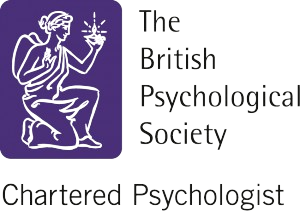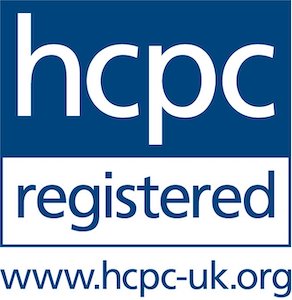Marked by an ongoing pattern of inattention and/or hyperactivity-impulsivity that interferes with functioning or development. People with ADHD report difficulties with poor listening skills, disorganisation, problem-solving, difficulty following things through, and poor time management.

Agoraphobia is a fear of being in situations where escape might be difficult. Or situations where help would not be available if things go wrong. This could be: leaving home, being in public spaces, using public transport and being in crowded spaces.
Sometimes anger can be a helpful emotion, but sometimes, it can be difficult to manage and make our lives harder. Anger can cause many different symptoms. It might affect how you feel physically, mentally or how you behave. Some people become aggressive towards others when they are angry. Other people hide their anger and may take it out on themselves.
A neurological and developmental disorder that affects how people interact with others, communicate, learn, and behave. Autism is characterised by impairments in social interaction and communication. Autism is also characterised by restricted interests and repetitive behaviours. Autism is referred to as a spectrum condition, which means that individuals can vary in how they are affected.
A personality disorder characterised by severe mood swings, impulsive behaviour, and difficulty forming stable personal relationships. People with borderline personality disorder can present with unstable relationships, self-harm, explosive anger and extreme emotional swings.
Depression is characterised by persistent sadness and a loss of interest in activities that you normally enjoy, accompanied by an inability to carry out daily activities for at least two weeks.
People with an eating disorder use the control of food to cope with uncomfortable feelings and other situations. The most common eating disorders are (1) anorexia nervosa – trying to control your weight by not eating enough food, exercising too much, or doing both; (2) bulimia – losing control over how much you eat and then taking drastic action not to put on weight; (3) binge eating disorder (BED) – eating large portions of food until you feel uncomfortably full.
GAD is marked by excessive, unrealistic worry and tension with little or no reason. People with GAD may also feel restless, on edge, or easily tired. They may also experience concentration problems, irritability, muscle tension, or sleep issues.
Losing someone close is a highly distressing experience associated with many powerful emotions. Some people experience physical symptoms as a result of grief. This includes difficulty sleeping, anxiety symptoms, loss of appetite, and feeling tired as if it’s too much effort to do anything.
Constant worry that you are unwell or that you are going to get ill. If you have health anxiety, you may be constantly examining your body for signs of illness, such as lumps or pain. In addition, you may be seeking reassurance from others or from medical professionals that you are not ill, and you may also worry that advice or results from medical professionals are incorrect.
People with low self-esteem might feel shy or anxious around others, think of themselves as incapable or criticise themselves harshly. Low self-esteem can result from negative life experiences, particularly when we’re young and most vulnerable. These experiences may include being criticised or judged negatively by a parent/caregiver or other adverse childhood experiences.
Marked by frequent and upsetting obsessions or compulsions. OCD is also characterised by an overwhelming urge to repeat certain behaviours. Common obsessions include a fear of dirt or germs, a fear of getting hurt or wanting to arrange things in certain ways. People with OCD often fixate on these obsessions and can have thoughts and rituals that interfere with their daily life. For example, someone who is worried that their house may be vandalised might lock the door multiple times and be scared to leave their house.
Sudden feeling of terror when no real danger is present. Physical symptoms include a fast heartbeat, chest or stomach pain, and breathing difficulty. People may also feel weakness, dizziness, sweating, chills, or numb hands. A panic attack might even feel like having a heart attack.
Relentless striving for extremely high standards for yourself and/or others that are personally demanding. People with perfectionist traits also judge their self-worth based largely on their ability to strive for and achieve unrelenting standards.
Intense fear of or aversion to specific objects or situations. This fear is out of proportion to the actual danger caused by the situation or object. People with a phobia may experience irrational worry and take steps to avoid the object or situation. They may also experience immediate anxiety upon encountering the feared object or situation. Common phobias include: (1) Animals – Such as spiders, snakes or rodents, (2) Environmental – Such as heights and germs, (3) Situational – Such as going to the dentist, Body – Such as blood or being sick and (4) Sexual – Such as performance anxiety.
PTSD occurs in people who have lived through or seen a traumatic event. These events may include war, a natural disaster, a serious accident, or physical or sexual abuse. PTSD may cause flashbacks to the event, trouble sleeping or nightmares, lonely feelings, or angry outbursts. People with PTSD may feel worried, guilty, or sad.
Interpersonal difficulties refer to problems with interpersonal relationships. Such difficulties may stem from feelings, thoughts, and behaviours that interfere with your ability to bond with others in general or in particular types of relationships.
People with social anxiety have intense fear or dread of social situations. This can happen before, during or after an event. Some common situations where people may experience anxiety include: speaking in public or in groups, meeting new people or strangers, dating and eating or drinking in public. Physical signs of social anxiety can include, sweating, racing heartbeat, shaky voice and blushing.


